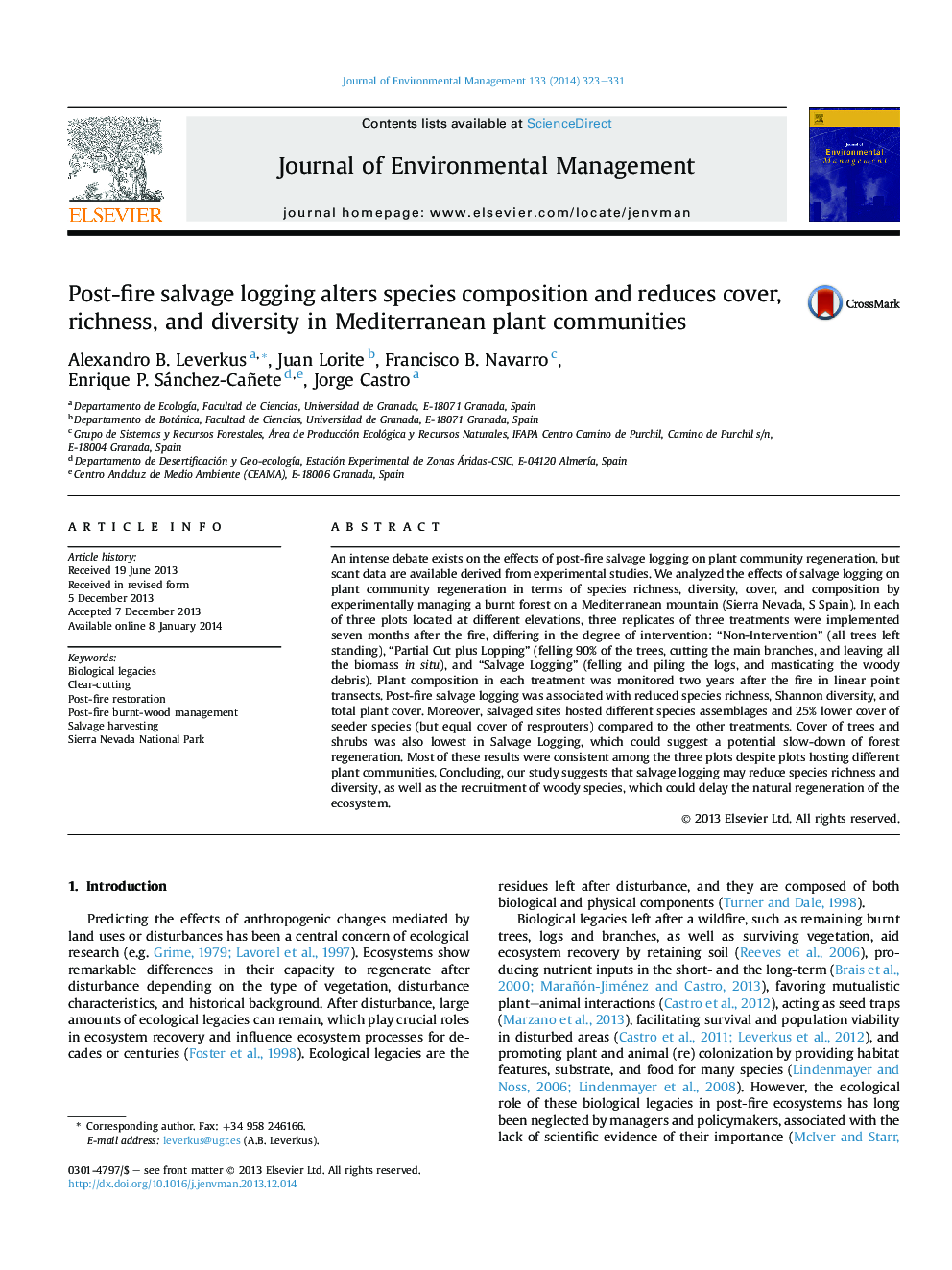| کد مقاله | کد نشریه | سال انتشار | مقاله انگلیسی | نسخه تمام متن |
|---|---|---|---|---|
| 1055852 | 1485279 | 2014 | 9 صفحه PDF | دانلود رایگان |
• We tested the effects of post-fire salvage logging on plant communities.
• Logging reduced plant species richness, diversity, and cover.
• Species composition in salvaged sites resembled early-successional habitats.
• Unsalvaged sites yielded greater tree regeneration.
An intense debate exists on the effects of post-fire salvage logging on plant community regeneration, but scant data are available derived from experimental studies. We analyzed the effects of salvage logging on plant community regeneration in terms of species richness, diversity, cover, and composition by experimentally managing a burnt forest on a Mediterranean mountain (Sierra Nevada, S Spain). In each of three plots located at different elevations, three replicates of three treatments were implemented seven months after the fire, differing in the degree of intervention: “Non-Intervention” (all trees left standing), “Partial Cut plus Lopping” (felling 90% of the trees, cutting the main branches, and leaving all the biomass in situ), and “Salvage Logging” (felling and piling the logs, and masticating the woody debris). Plant composition in each treatment was monitored two years after the fire in linear point transects. Post-fire salvage logging was associated with reduced species richness, Shannon diversity, and total plant cover. Moreover, salvaged sites hosted different species assemblages and 25% lower cover of seeder species (but equal cover of resprouters) compared to the other treatments. Cover of trees and shrubs was also lowest in Salvage Logging, which could suggest a potential slow-down of forest regeneration. Most of these results were consistent among the three plots despite plots hosting different plant communities. Concluding, our study suggests that salvage logging may reduce species richness and diversity, as well as the recruitment of woody species, which could delay the natural regeneration of the ecosystem.
Journal: Journal of Environmental Management - Volume 133, 15 January 2014, Pages 323–331
